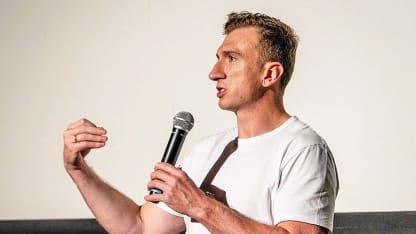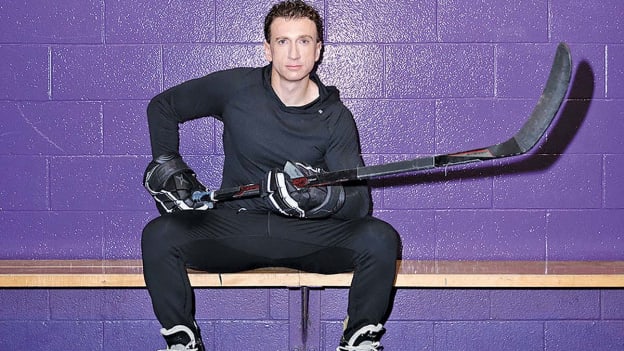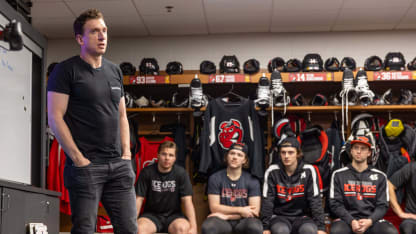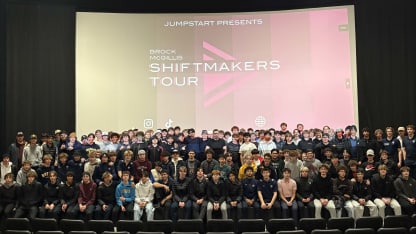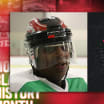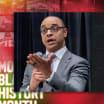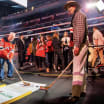This was originally published on June 20, 2025.
In 2015, a group of youth hockey players finished a two-hour grueling sprint workout on a track in Sudbury, Ontario when the sprint coach called them together. The coach said they were going to do 10 more sprints to finish off practice.
One of the younger players responded with: “I can’t believe you’re making us do this. That’s so gay.”
One of the older players in the group heard this. He turned to the former and said: “We don’t say that here. Give me 50 pushups.”
So, the younger player dropped down and did 50 pushups while the rest of the players watched and took note. And from there on, anytime a player used any type of homophobic language, 50 pushups were demanded and given. And the ritual spread throughout that team and soon to other teams throughout the region and beyond.
“In that moment, I knew that we could create a shift in this culture,” said Brock McGillis, the first openly gay pro hockey player and an advocate for inclusivity. “We can create shifts for everyone or anything. It doesn’t have to LGBTQ+ but pick the topic: racism, homophobia, misogyny, mental health.
“Each and every one of us has the ability to create a shift.”
McGillis, who had worked with the aforementioned youth players, started a speaking tour across North America called Shiftmakers. He made 150 stops in Canada and another 70-plus in the United States in less than two months. During his speaking opportunities he uses his own life story and experiences as a closeted gay man in the hockey world to humanize himself and other marginalized communities.
McGillis, who has been an active advocate for rights and acceptance for the past decade, teaches simple ways that we can all create shifts so that everyone can be themselves, whether in the hockey world, business world or beyond.
McGillis believes there are three ways to create such shifts in culture: humanize, creating open environments and breaking conformity.
Putting a face, background and story makes it more accessible and real. When people hear the struggles and pains of those that are othered, and are reminded of their humanity, it can change perception.
“When you put a face to an issue it becomes more real,” McGillis said. “It doesn’t matter what the issue is, when we humanize it, it becomes less theory abstract debate, and it becomes more real.”
Creating a safe environment takes courage. Something that is lacking in many instances.
“The easiest way to make sure people don’t feel bad is through your words, through your language,” McGillis said. “But there’s something that comes before language. It’s to be brave.”

